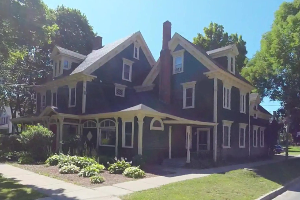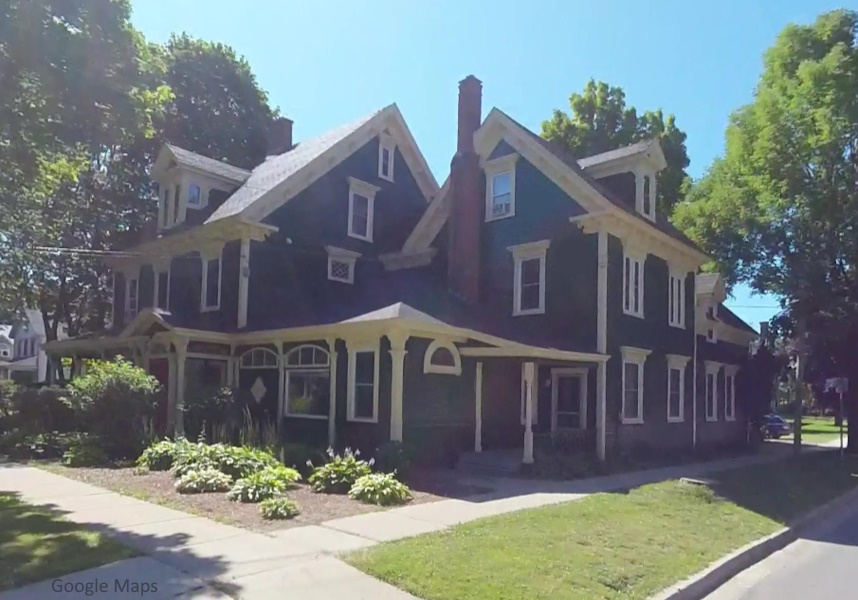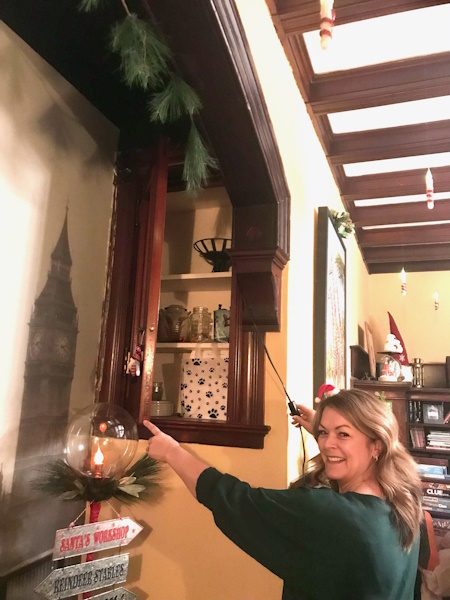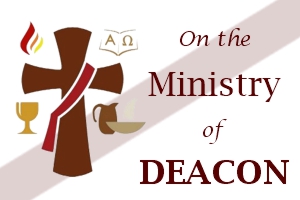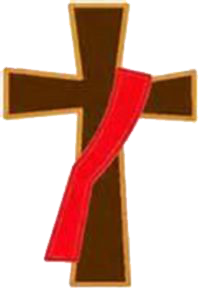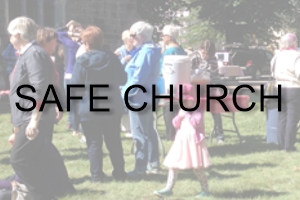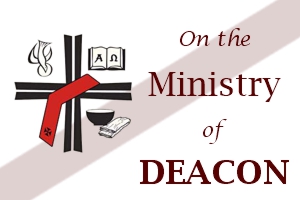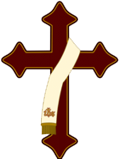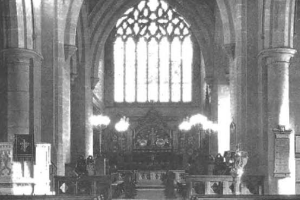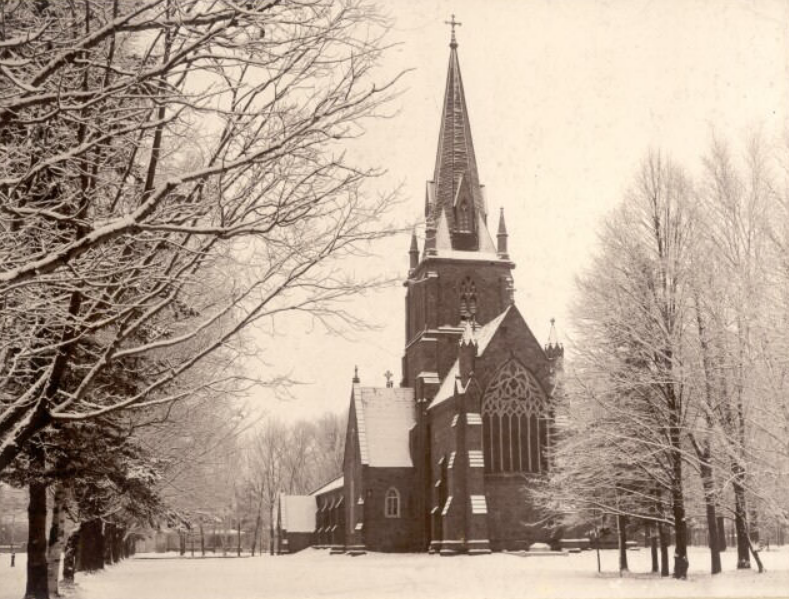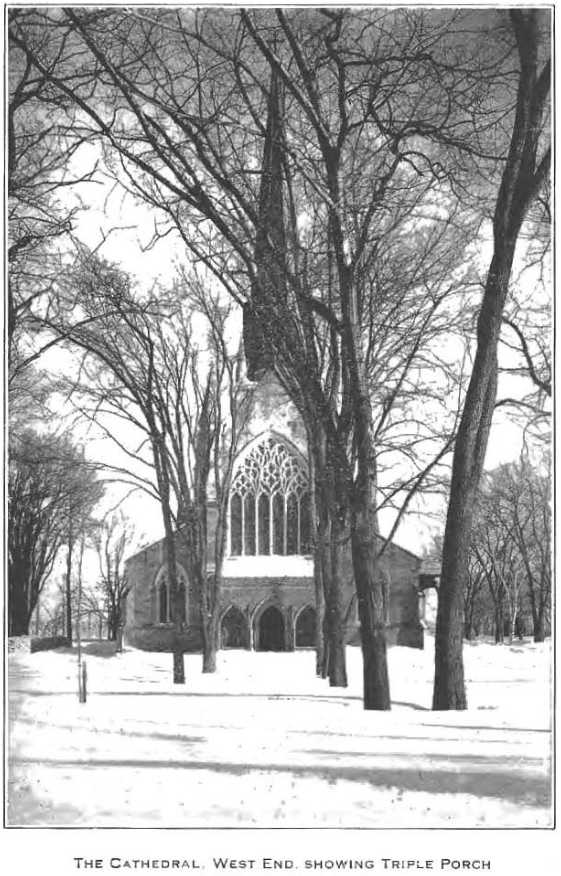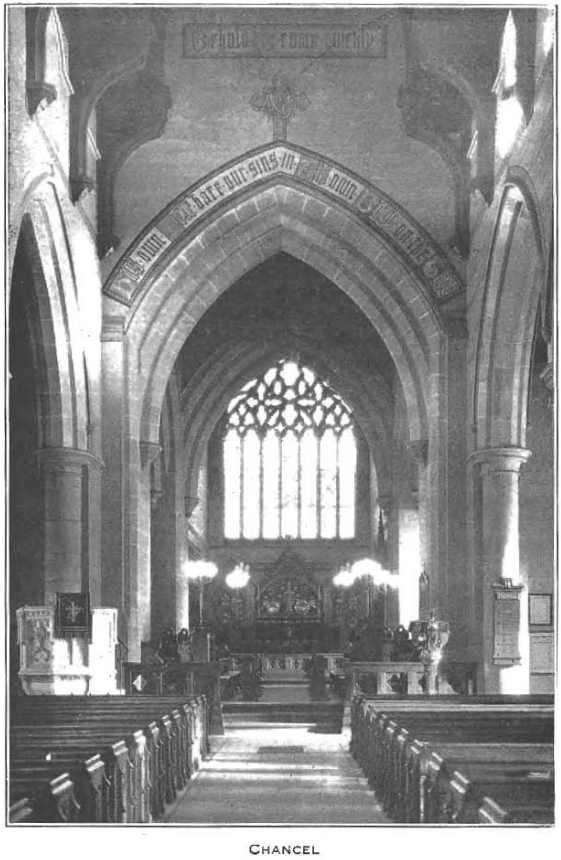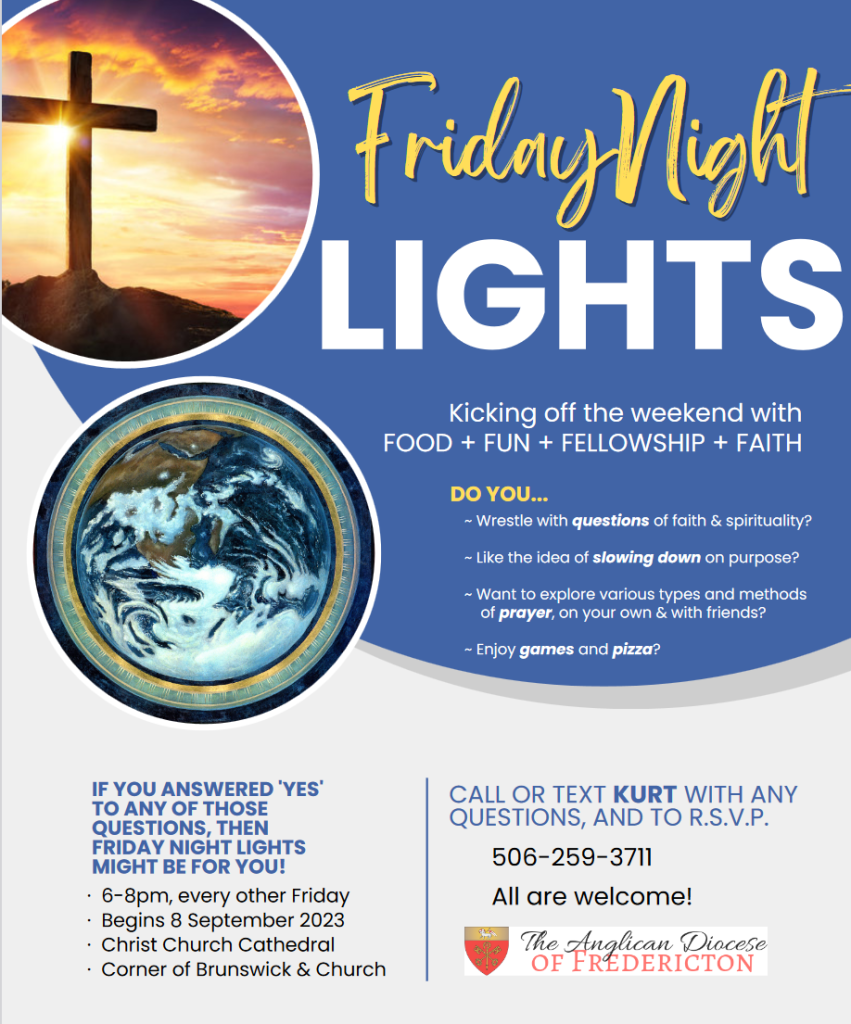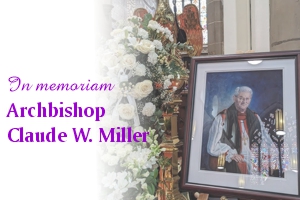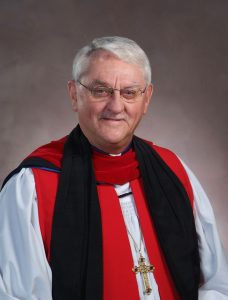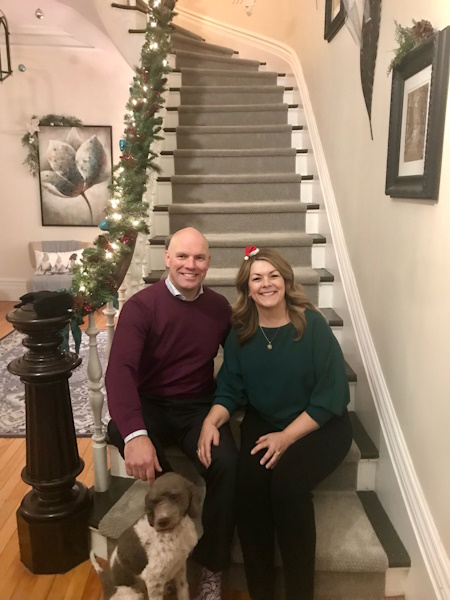
Ben and Deborah Johnson with Ollie, one of their dogs. Luna is pictured in the slideshow below, in the living room.
When Deborah and Ben Johnson purchased their George Street home two and a half years ago, they knew they were purchasing an historically significant building. But until they started peeling the layers back, they probably didn’t realize just how much Fredericton history was contained within those many plastered walls. Included in that history, is a period relevant to the history of Christ Church Cathedral.
But let’s start at the beginning of Ben and Deborah’s story and how they became (in their words), “the caretakers” of this historical property.
Ben and Deborah were living in Starlight Village in Hanwell, when they decided the time had come to build their dream home. The blueprints were finalized and they had purchased the perfect piece of property to start seriously thinking of construction. Knowing that it would be a one or two year project, they decided to look for a downtown, two apartment house that they could live in and rent out while that construction took place. Their real estate agent was given the task of finding that house. And as luck – or fate – would have it, the George Street property was about to go on the market. Even though it clearly wasn’t a two apartment building, Ben and Deborah thought, “This isn’t the one but why not take a look at this beautiful home”. Upon entering the house, just one look at the grand staircase was all it took. And the rest really is history!
The current George Street house was constructed facing Church Street in 1840. It was a modest two storey home which grew in 1870, when it’s owner George Frederick Gregory, Judge of the Supreme Court of New Brunswick and Mayor of Fredericton decided to build an addition fronting on George Street. This addition was also two storey and the house increased significantly in size and grandeur. Mayor Gregory and his family lived here until his passing in 1910. In 1912, the property was purchased by Christ Church Cathedral Bishop and Chapter as the Residence for the Most Reverend John Richardson, Archbishop of Fredericton, resided here with his wife, Dora and family until his death. The house was owned by Christ Church Cathedral until 1938. While Richardson family resided here, the third and final addition was added, also fronting on George Street, and this addition was his official office and became known as the Bishop’s Library.
Ben and Deborah believe that it was this addition that really brought the original two houses together architecturally. It is currently listed in the National Historic House Registry specifically for those many architectural details.
The house went on to have several more interesting incarnations. After the death of Bishop Richardson, the house was purchased by Dr. Cowie, a Fredericton family physician. At that time, the hospital was housed just a block or so away on Church Street. Rumour has it that at one time, a tunnel ran from the George Street house to the hospital. But rumour also has it that a tunnel ran from George Street to the Cathedral in the Bishop’s time! Perhaps both Bishop Richardson and Dr. Cowie disliked cold winter walks.
In 1959, the house was sold to UNB and became Murray House, a student residence, and the Bishop’s Library was used as the Common room, quite a change from a Bishop’s office!
In 1982, it was purchased by Sam and Yolande Rubinstein who turned it into “The Very Best Bed and Breakfast’ which thrived as a B&B under their ownership for many years. The Church Street portion was turned into three one-bedroom apartments by the Rubinstein’s and the five bedrooms on the second floor became the guest rooms. Each bedroom had its own electric fireplace and ensuite bath added by the Rubinsteins. During this time, theatre folk performing at Fredericton’s Playhouse were among the many guests.
When the Rubinsteins decided to move to Calgary in 2019 to be nearer their grandchildren, the house changed hands again, this time, the purchasers intended to turn it into an Air BNB. Those plans were thwarted two years later, when despite significant renovation, COVID raged, travel was restricted and the Air BNB business did not thrive.
Enter Deborah and Ben in May of 2021. After visiting with them (and with Ollie and Luna, the resident dogs), we feel certain that all past owners would be very content with the current interior design and decoration. We were very pleased to visit when decorating for the Christmas Season was in full swing. Ben and Deborah really do regard themselves as “caretakers of an historic property” and have done all renovations with this in mind. Right down to the removal of five to six layers of asphalt and cedar shingles, preserving plaster walls, repairing crumbling chimneys, updating the kitchen and more, they have been conscious of marrying today’s convenience with an eye to preserving the architectural history of the home.
The Bishop’s Library, as seen below, has had many of the original features restored and highlighted. The bookshelves and cabinetry are original as are the glorious stained glass windows. The fireplace, although not a working fireplace, has had the original interior details restored. We think Bishop Richardson would be more than happy with his office were he to pop by for a visit!
Thank you to Ben and Deborah for sharing their home in this way with the Cathedral Congregation and visitors to our website. We don’t have to wonder what the next incarnation of this fine residence will be. Ben and Deborah already have that worked out! While they love living here and will be sad to leave, their dream home is still calling. But the property will remain in the very caring competent hands of these two. Their plan is to turn it into a “shared living home” where five like-minded women can each rent their own room with private bath while sharing common spaces. They have a list of interested people, but are open to adding to that list if this concept appeals to you!
Hopefully, you’ve enjoyed the pictures and story of one of Fredericton’s loveliest historic properties!
- by Gail MacGillivray
Photo credit: Lynne Tompkins
